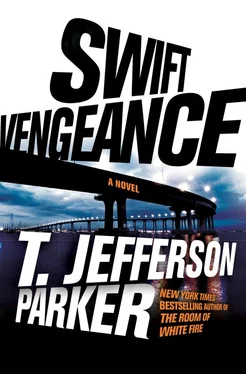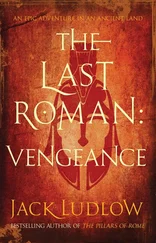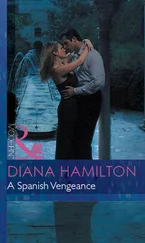“Patience was pure Dad,” said Taucher. “He was all patience. Me, you know — the opposite.”
We ate jerky and apples and energy bars we’d picked up at a convenience store. Stared at Hector Padilla’s house in silence, like it was the Church of the Holy Sepulchre and we were expecting a miracle.
Mind adrift, I thought about Justine and hoped that God was taking good care of her. Recalled my strong emotions just a few hours ago as I had landed Hall Pass 2 at Fallbrook Airpark. Just as I had done so many times with Justine in those brief and beautiful days. I like to drift, remembering the good and forgetting the bad.
Taucher brought me back to earth, stating that American Latinos were the fastest-growing group of Americans converting to Islam. Had their own mosque in Houston. Two hundred thousand Latino Muslims in the States right now. Mostly women, but guys like Hector, too. I wondered out loud why Islam was appealing to Latinos. She had no facts but said that Muslims and Latinos both felt like second-class people in America. Plus Latinas could then wear a hijab and hide their true ethnic identity, or some blemishes or scars, such as her own “pestilential” hematoma.
A light went on in the back of Hector’s house, then another in the living room. A faint human shape moved behind the curtains and was gone.
“Well, well,” said Joan. “Does he work Sundays?”
“He’s not scheduled, but he fills in a lot,” I said. This from my contact with the company that did security for First Samaritan Hospital.
Five minutes, then ten.
A Miata came past us, top down in the cold, older guy in a knit cap, surfboard riding beside him, heater probably pegged. Retirement in the Golden State, I thought, endless summer.
Fifteen minutes later Hector’s garage door rose and his gleaming black Cube backed into the foggy night.
Hector worked his way through the neighborhood, signaling long before his turns, always at or below the speed limit, going extra-slow in the fog. I stayed well back, the signal on my GPS tracker strong.
He merged onto Interstate 8 with the determination of a bed of kelp. Taucher cursed him under her breath as she monitored her phone and the tablet at her feet, throwing its cool light up at us. “No man should drive like that,” she muttered. “It’s a sin.”
No sooner had he hit sixty miles an hour when Hector signaled to exit. Off at Los Choces toward Lakeside. Hector took the right lane, of course, his Cube glimmering even in the fog.
“Maybe he’s going to the Walmart supercenter,” Taucher said. “I get all my household stuff there. Save a bundle.”
And sure enough, Hector pulled into the Walmart supercenter at Camino Canada. He parked far out in the lot. I pulled forward into a space with a good view of him. He sat in the driver’s seat, his head bowed to his phone, his distant face uplit by the screen.
“All yours, Joan,” I said. “He’ll recognize me from the Treasures of Araby.”
“Need anything?”
“I’m fine for now.”
She got out, set the tablet on her seat, and shut the door. I watched her and Hector converge on the entrance. Taucher had her black purse slung over a shoulder, her peacoat and sweater and duty boots. A black watch cap snugged down. Strong legs, long strides, poise and balance. I didn’t know what to make of her. Never had. Some big part of her remained unknown to me — to the whole world, for all I knew. Attracting but not welcoming. Walled but not hidden. Taucher’s words expressed my feelings, too: I don’t dislike you. But who, really, are you?
Then Hector, angling from her left in his too-big Raiders hoodie and too-small jeans. A puffy wad of plastic Walmart bags in each hand. He stopped to look at the window decals on an SUV. Hiked his jeans and wiggled his hips as he read, grocery bags flapping in the breeze. A multifaceted man, Hector. A football fan. A Cube owner. A seeker of Allah, a student of Arabic, an admirer of Muslim women. A reader of the jihadi magazine Rumiyah , owner of two new janbiyas and one large sharpening stone, deliverer of five thousand six hundred eighty rounds of new ammunition in weatherproof cases. Now trying to stuff the plastic bags into one bag as he ambled into Walmart to stock up on Allah knew what.
I watched the American shoppers come and go. Baskets and bags of loot. Each time Taucher’s tablet went to screensaver mode, I touched the space bar and brought the screen back to life.
Not going to answer the Warrior of Allah, Ben?
Wouldn’t you like some easy money? Oh? How much?
Nearly forty minutes later I saw Hector pushing a well-burdened cart through the sliding exit door and heading toward his car. He stopped and answered his phone. Someone backed toward him and honked to get him to move. Hector waved, walked behind another car, stopped, and continued talking.
Taucher came briskly from the store, a plastic bag dangling from one hand, peacoat unbuttoned and watch cap off. Hector was off his phone and back en route for the Cube when Taucher threw open my truck door and climbed in. She slung her bag into the back.
“He bought holiday party stuff,” she said. “Red paper tablecloths and napkins, green drink napkins, green and red plastic tumblers, ‘Happy New Year’ placemats with champagne glasses and top-hat designs on them. Quantities of all. Enough plastic flatware for two hundred and fifty people. Tins of those wretched holiday sugar cookies. Other than that, no food or drink, just the supplies and decorations. I timed my purchases perfectly to be in the next line when he paid up. He dropped two hundred and eighty-six dollars and thirteen cents. See, you really can save a bundle here.”
While Hector tied each bag snug and loaded it into the back of his Cube, we speculated. Was the Muslim wannabe throwing a Western-style holiday party? Was it a First Samaritan Hospital employee event? Did Hector have two hundred and fifty friends?
He got back into his Cube and took the interstate west toward his home. Passed his exit. Held a solid fifty-five miles per hour in the slow lane. I-8 west to the 163 south, to I-5 north, exiting Fifth Avenue, then west toward the fog-shrouded Pacific Ocean and a left turn on North Harbor Drive.
He parked along the Broadway Pier, short of the Cruise Ship Terminal. I went past him and found a place. This is one of San Diego’s postcard views — the bay and the yachts with their masts jutting up against the flanks of the downtown high-rises. Off in the distance an immense aircraft carrier sat at anchor off Coronado. Closer in, the Cruise Ship Terminal, and a big Viking Line ship being readied for a morning departure. Closer still, the smaller commercial ships — Hornblower vessels for lease, bay cruisers, party barges, and private yachts. The lamps on the boardwalk made halos in the mist.
Hector locked his Cube with the fob and headed down the boardwalk. Taucher and I followed far back. When we came to the Cube, Taucher faked a call with her phone, pacing the boardwalk while I knelt behind the car and replaced the GPS tracker with another — battery fully charged and ready to go.
A hundred yards ahead of us, Hector stepped off the boardwalk and onto a private dock. The yacht beside it looked large. He stood outside a white picket gate and entered a code on a keypad. The gate swung open and Hector traipsed down the dock toward Glorietta .
She was an older motor yacht — a vintage dining ship that might have been working the San Diego area for decades. Three decks. She appeared strong and capable and well cared for.
Hector took out his phone and began shooting pictures of the ship. I could see the flash blipping through the lesser lights of the dock. He went bow to stern, composing his shots patiently.
Читать дальше












